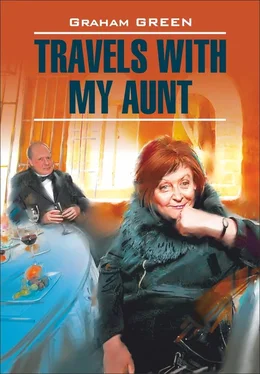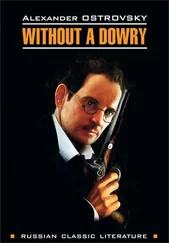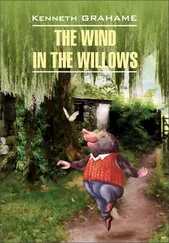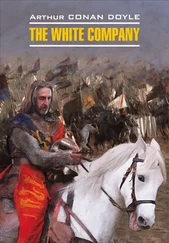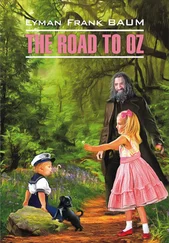1 ...7 8 9 11 12 13 ...78 “To think that little shop in the Old Steine survived two great wars.”
“We’ve survived,” Hatty replied, “but they aren’t turning us into betting shops.”
“Oh, it will need an atom bomb to destroy us,” Aunt Augusta said.
I thought it was time to speak. “The situation in the Middle East is pretty serious,” I said, “judging from today’s Guardian .”
“You can never tell,” Hatty said, and they were both for a while buried in thought. Then my aunt picked out a tealeaf, put it on the back of her hand and slapped it with the other; it clung obstinately to a vein which was surrounded by what my mother used to call grave-marks.
“Can’t get rid of the fellow,” Aunt Augusta said. “I hope he’s tall and handsome.”
“That isn’t a stranger,” Hatty corrected her. “That’s the thought of a departed you can’t get out of your mind.”
“Living or dead?”
“It could be either. How stiff does he feel?”
“If he’s living I suppose it could be poor Wordsworth.”
“Wordsworth is dead, dear,” Hatty said, “a very long time ago.”
“Not my Wordsworth. It’s stiff as wood. I wonder who a dead one could be.”
“Poor Curran perhaps.”
“I have thought a lot about him since I came to Brighton.”
“Would you like me to do a professional cup, dear, for you and your friend?”
“Nephew,” Aunt Augusta corrected Hatty in her turn. “It would be fun, dear.”
“I’ll make another pot. The leaves have to be fresh and I use Lapsang Souchong [52] Lapsang Souchong – сорт китайского чая
professionally, though I drink Ceylon – Lapsang gives big leaves and good results.”
When she came back after washing the pot and our cups my aunt said, “You must let us pay.”
“I wouldn’t dream of it, dear, not after all we’ve been through together.”
“With the Revered.” They giggled again.
Hatty poured in the boiling water. She said, “I don’t let the pot draw. The leaves speak better fresh.” She filled our cups. “Now toss the tea away, dear, in this basin.”
“I’ve got it,” my aunt said. “Hannibal.”
“Who’s Hannibal?”
“The elephant that trod on Curran’s toe.”
“I do believe you’re right, dear.”
“I was watching the tea and it came to me suddenly in a flash.”
“I often notice that with the leaves. Things come back. You are watching the leaves and things come back.”
“I suppose Hannibal’s dead too.”
“You can’t tell, dear, with elephants.”
She picked up my aunt’s cup and studied it closely. “It’s interesting,” she said, “very interesting.”
“Bad or good?”
“A bit of both.”
“Just tell me the good.”
“You are going to do a lot of travelling. With another person. You are going to cross the ocean. You are going to have many adventures.”
“With men?”
“That the leaves don’t say, dear, but knowing you as I do, it wouldn’t surprise me. You will be in danger of your life and liberty on more than one occasion.”
“But I’ll come through?”
“I see a knife – or it might be a syringe.”
“Or it could be something else, Hatty – you know what I mean?”
“There is some mystery in your life.”
“That’s nothing new. [53] That’s nothing new. – ( зд. ) Подумаешь, удивила.
”
“I see a lot of confusion – a lot of running about this way and that. I’m sorry, Augusta, but I can’t see any peace at the close. There’s a cross. Perhaps you find religion. Or it could be a double-cross.”
“I’ve always been interested in religion,” my aunt said, “ever since Curran.”
“Or it could be a bird, of course – a vulture perhaps. Keep away from deserts.” Hatty gave a sigh. “Things don’t come to me so easily as they once did. I exhaust myself with strangers.”
“But you’ll take one look at Henry’s cup too, dear, won’t you? Just one look.”
She poured my tea away and looked in the cup. “Men are difficult,” she said. “They have so many occupations beyond a woman’s knowledge and that affects the interpretation. I had a client once who said he was a bevel-edger. I don’t know what he meant. Are you an undertaker?”
“No.”
“There’s something that looks like an urn. Do you see it there? On the left of the handle. That’s the recent past.”
“It might be an urn,” I said, looking.
“You will do a lot of travelling.”
“That’s not very likely. I’ve always been rather stay-at-home. It’s quite an adventure for me coming as far as Brighton.”
“It’s in the future you’re going to travel. Across the ocean. With a lady friend.”
“Perhaps he’s coming with me,” Aunt Augusta said. “It’s possible. The leaves don’t lie. There’s a round thing like a target. There’s a mystery in your life too.”
“I’ve only just discovered that,” I said.
“I see a lot of confusion too and running about. Just like in Augusta’s cup.”
“That’s most unlikely,” I said. “I lead a very regular life. A game of bridge once a week at the Conservative Club. And my garden, of course. My dahlias.”
“The target might be a flower,” Hatty admitted. “Forgive me. I’m tired. I’m afraid it was not a very good reading.”
“It was most interesting,” I told her for politeness’ sake. “But of course, I’m no believer.”
“Have another ginger-snap,” Hatty said.
We had dinner that night at the Cricketers’, a small public house nearly opposite a second-hand bookseller, where I saw a complete set of Thackeray for sale at a very reasonable price. I thought it would go well on my shelves below my father’s edition of the Waverly novels. Perhaps tomorrow I would come back and buy it. The thought gave me a warm feeling towards my father, a sense of something in common. I too would start at Volume I and continue to the end, and by the time that last volume was finished it would be time to begin again. Too many books by too many authors can be confusing, like too many shirts and suits. I like to change my clothes as little as possible. I suppose some people would say the same of my ideas, but the bank had taught me to be wary of whims. Whims so often end in bankruptcy.
When I wrote that we had dinner at the Cricketers’, it would have been more correct to say we ate a substantial snack. There were baskets of warm sausages on the bar, and we helped ourselves and washed the sausages down with draught Guinness. I was surprised by the number of glasses my aunt could put down and feared a little for her blood pressure.
After her second pint she said, “It was odd about that cross. In the leaves I mean. I’ve always been interested in religion – ever since I knew Curran.”
“What church do you attend?” I asked. “Didn’t you tell me you were a Roman Catholic?”
“I call myself that for convenience,” she said. “It belongs to my French and Italian periods. After I left Curran. I suppose he had influenced me, and then all the girls I knew were Catholic and I didn’t like to look superior. I expect you’d be surprised to hear that we ran a church once ourselves – me and Curran, here in Brighton.”
“‘Ran’? I don’t understand.”
“It was the performing dogs that gave us the idea. Two of them came to see Curran in hospital before the circus moved on. It was visiting day and there were a lot of women around to see their husbands. At first the dogs weren’t allowed into the ward. There was quite a fuss, but Curran got round matron, telling her they weren’t ordinary dogs, they were human dogs. Bathed in disinfectant they were, he told her, every dog, before they were allowed to give a performance. It wasn’t true, of course, but he was very convincing. They came up to the bed, wearing their pointed hats and pierrot collars, and each gave Curran a paw to shake and touched his face with its nose like an Eskimo. Then they were taken quickly away in case the doctor might appear. You should have heard those women. ‘The darlings, the sweet little doggies.’ It was lucky neither of them had raised a leg. ‘Just like humans.’ One woman said, ‘You can’t tell me that dogs haven’t got souls.’ Another one asked, ‘Are they gentleman doggies or lady doggies?’ as though she had been too refined to look. ‘One of each,’ Curran said, and just out of devilry he added, ‘They are married as a matter of fact.’ ‘Oh, isn’t that too sweet? Oh, the darlings. And have any little doggies come yet?’ ‘Not yet,’ Curran said. ‘You see, they have only been married a month. At the doggies’ church in Potters Bar.’ ‘Married in church?’ they squealed and I really thought he’d gone too far, but how they swallowed it down! They all gathered round Curran’s bed and left their husbands abandoned. Not that the husbands minded. Visiting day is always a horrible reminder of home to a man.”
Читать дальше
Конец ознакомительного отрывка
Купить книгу
